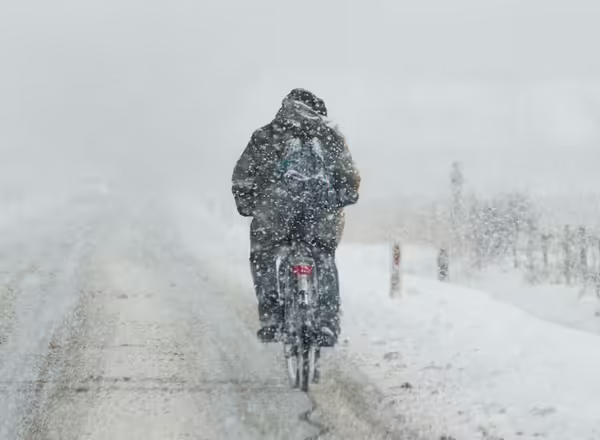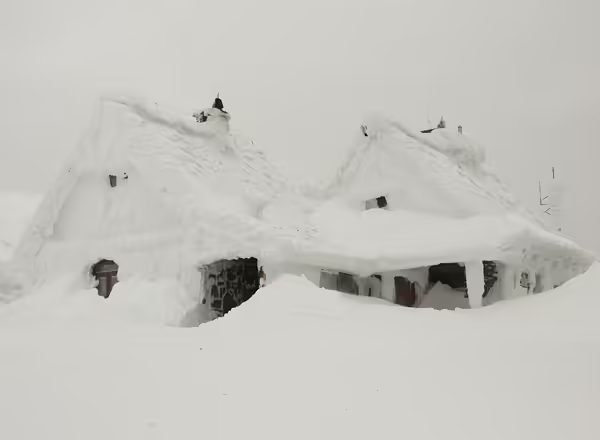What to do depending on where you are
Image

Outside
- Seek shelter to stay dry.
- Cover all exposed parts of the body.
- If no shelter is nearby, prepare a lean-to, wind-break, or snow cave for protection from the wind. Build a fire for heat and to attract attention.
- Do not eat snow as it will lower your body temperature. Melt it first.
Image

In a Vehicle
- If you have a cellular phone, call for help.
- Stay in your vehicle. Disorientation occurs quickly in wind-driven snow and cold.
- Run the engine (after making sure the exhaust pipe is not blocked and opening windows a little for fresh air to avoid carbon monoxide poisoning) about ten minutes each hour for heat.
- Make yourself visible to rescuers. Turn on the dome light at night when running engine. Tie a colored cloth (preferably red) to your antenna or door. Raise the hood indicating trouble after snow stops falling.
- Exercise from time to time by vigorously moving arms, legs, fingers, and toes to keep blood circulating and to keep warm.
Image

At Home or in a Building
- Stay indoors. When using alternative heat from a fireplace, wood stove, space heater, etc. use safeguards and ensure proper ventilation.
- If you have no heat, close off unneeded rooms and place towels or rags under the doors. Cover windows at night.
- Eat to supply heat and drink to avoid dehydration.
- Wear layers of loose-fitting, light-weight, warm clothing. Remove layers to avoid overheating, perspiration and subsequent chill.